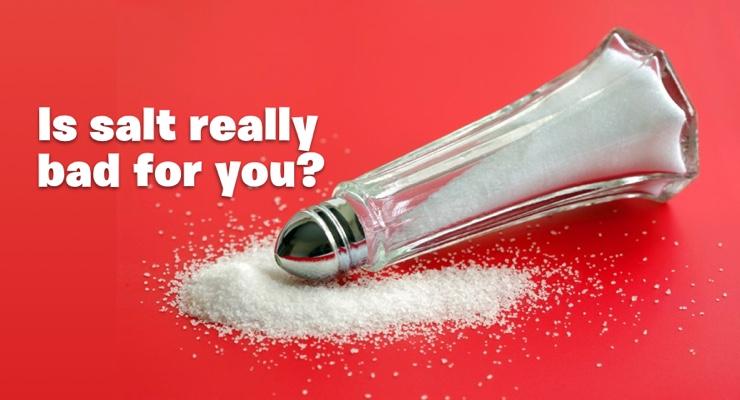
- Health advice
- Mar 12, 2017
Not all Salts are created equal - Are you at risk for Heart Disease?
Diets high in salt have been linked to causing heart disease for decades. But, is there another ingredient to blame? Modern scientists seem to think so. Apparently, it is not so much salt itself that harms your health, as it is the type of salt you eat. In fact, salt provides two essential elements, sodium and chloride, that your body needs but cannot make on its own. Therefore, making minor adjustments to your salt consumption as opposed to completely eliminating salt from your diet is ideal.
Why you should NOT stop eating Salt
Sodium and chloride are the two main elements that combine to make salt. These are essential as salt is necessary for the following functions:
- Acid-alkaline balancing
- Blood pressure regulation
- Cellular nutrient transport
- Brain and muscle coordination
- Adrenal gland hormone production
Natural vs. Processed Salt
Studies show that processed salt is what you really have to worry about. The majority of salt found on the table is processed or refined salt containing sodium, chloride, iodine, and hazardous man-made chemicals. From shortness of breath to fluid retention, consuming high amounts of processed salt can produce several serious conditions. And those conditions can easily develop into heart disease and even heart failure. On the other hand, natural salt contains only sodium, chloride, and natural trace minerals like phosphorous and silica. Again, natural salt is important for maintaining your overall health. For that reason, individuals with heart failure actually increase their risk of death if they restrict their salt intake.
Why does Heart Disease persist even with Salt restriction?
After being negatively linked to heart disease, salt consumption appeared to drop dramatically. Nevertheless, heart disease remains as one of the leading causes of death. Why? The only answer researchers have come up with is that something other than salt must be at work. And that something is fructose. In addition to salt, processed foods are also loaded with fructose. This unassuming sugar is known to cause high blood pressure, heart disease, and other chronic diseases, yet it has been overlooked—until now.
Are you Potassium-deficient?
As it turns out, processed food not only introduces harmful agents to your body like processed salt and fructose, but also attacks your sodium-potassium ratio. Similarly to sodium, your body needs potassium to regulate water absorption, blood pressure, thirst, etc. Thus, keeping your sodium and potassium levels balanced helps you avoid:
- Electrolyte imbalance
- Heart disease and stroke
- Stomach cancer and ulcers
- Memory loss
- Kidney stones
- Erectile dysfunction
- Arthritis and osteoporosis
Scientists now believe that high sodium intake plus low potassium intake is the lethal formula that develops heart disease. And eating a lot of processed food places you in position for both of those conditions.
Reducing your risk of Heart Disease
It is never too late to turn your eating habits around for the better. Start by eliminating all processed foods from your diet. Focus on consuming whole, organic, or locally grown fruits and vegetables. Some good examples include avocado, asparagus, broccoli, lima beans, papayas, and rock melon. Also, do not forget to invest in natural Sea Salt or Himalayan Salt or as a replacement for processed, refined, table salt. Go ahead and add salt to taste, and think twice before restricting your salt intake. For more ideas, feel free to ‘Ask a Naturopath’ at Mr Vitamins.
Related Articles
Recently Viewed
- ${ variant.price | currencyFromCents } | ${ variant.title } ${ variant.price | currency } | ${ variant.title }


















